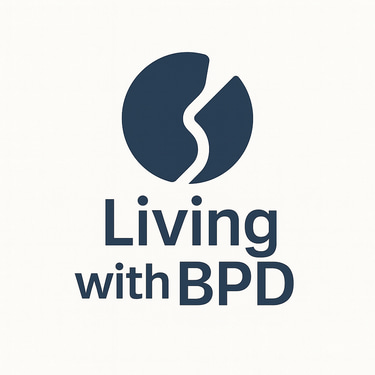Help for family members
For those who love someone with BPD
There are things that aren't talked about enough. Living with someone with Borderline Personality Disorder isn't easy. It isn't comfortable. It isn't straightforward. And it's not your fault either.
Sometimes it hurts.
Sometimes it's exhausting.
Sometimes it's scary.
And other times you feel like you're holding up the whole world with your bare hands.
But there's also something that no one says out loud:
Someone with BPD doesn't choose to feel this way. They don't want to hurt anyone either. They're fighting to keep from breaking down every single day.
And if you're here, reading this, it's because you love someone who's living through that internal battle, and you still stay. That has immense value.
You're not responsible for the disorder, but your support matters.
You're not there to "save" them, or to "fix" them, or to carry the weight of it all.
You're there to be there for them.
To set healthy boundaries.
To learn.
To understand when to hold on and when to step back a little so you can breathe.
Your presence doesn't cure BPD, but it can be an anchor, a place where the person feels safe, seen, and not judged.
BPD isn't a monster; it's a wound.
An invisible wound that throbs intensely and sometimes explodes.
A wound that formed many years ago, usually without the person being able to prevent it.
A wound that doesn't have an off switch.
But it's a wound that can heal with treatment, therapy, professional support, tools, and a lot of patience. A lot.
Your role is difficult, but you're not alone.
There are families who remain silent out of shame.
There are partners who feel guilty.
There are children who don't understand what's happening.
There are mothers who break down in silence because they believe they've failed.
No.
No one failed here.
What you're experiencing is real, complex, and legitimate.
And you, too, need support, rest, information, and a space where you don't have to "be strong" all the time.
What truly helps
Understanding the disorder without demonizing it.
Supporting without overprotecting.
Listening without absorbing.
Accompanying them without losing yourself.
Remembering that recovery exists: slow, hard, but it exists.
There is hope, and that's not just a pretty phrase.
People with BPD can improve.
They can stabilize.
They can learn tools.
They can transform their lives.
They can raise children, work, love, build, and get back up a thousand times.
Not because it's easy, but because they are first-rate fighters, even if they don't always realize it.
And you, who are by their side, are part of that journey.
This space is also for you.
So that you can understand.
So that you can breathe.
So that you can let go of guilt.
So that you can learn how to help without emptying yourself.
So that you don't feel alone.
Because supporting someone with BPD is difficult, yes…
but it can also be profoundly human, transformative, and full of real love. The good kind. The kind that holds you even when you're trembling.


Important notice: The information on this website is for informational purposes only and does not replace medical, psychological, or psychiatric care. In case of emergency or emotional crisis, contact the appropriate health services. 📞 112 📧 ayuda@vivircontlp.com · Legal notice · Privacy policy · Cookie policy
